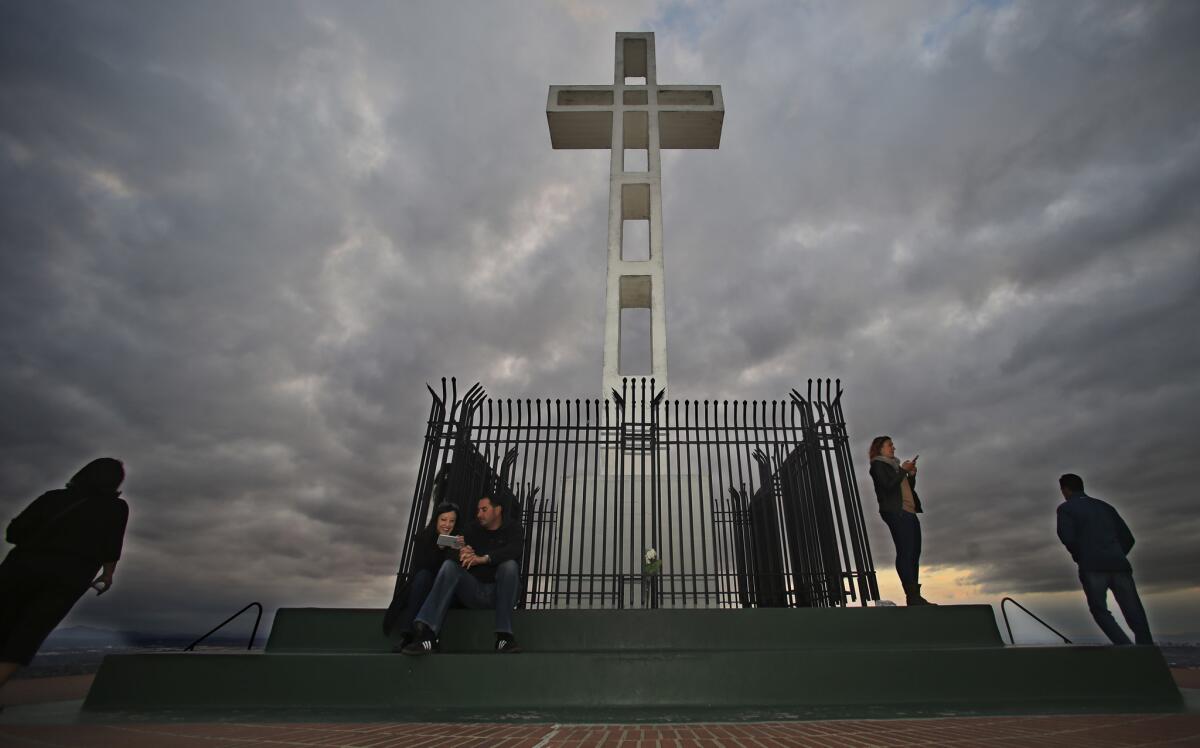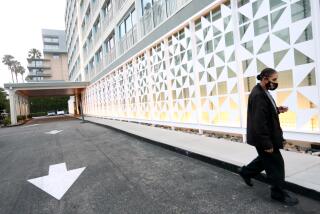Senate passes bill that could keep cross atop Mt. Soledad, end legal battle

The U.S. Senate passed a defense policy bill Friday that would allow a 43-foot cross to remain atop Mt. Soledad in San Diego, possibly ending a 25-year legal battle.
A provision in the $577-billion measure calls for the federal government to sell the land beneath the cross to the Mt. Soledad Memorial Assn., which has pledged to retain the cross as part of a war memorial.
“It is hoped that this provision and subsequent sale will end the ongoing controversy regarding the memorial while preserving the land as a privately owned veteran’s memorial in perpetuity,” said Sen. Dianne Feinstein (D-Calif.)
Rep. Duncan Hunter (R-Alpine), a Marine veteran of Iraq and Afghanistan, said that as soon as President Obama signs the bill, “the process can begin to transfer the memorial to a new owner.”
“The assumption remains that legal challenges will continue,” Hunter said, “but at least now, this one veterans memorial, which is an important piece of the San Diego community, can no longer be perceived as a government endorsement of religion.”
The cross was erected in 1954. Since the late 1980s, litigants have argued that the cross violates the constitutional separation of church and state. In 2006, the land was transferred from city ownership to the federal government.
The case is now with the 9th U.S. Circuit Court of Appeals, which in a previous ruling ordered the cross removed.
Lawyers representing clients who believe the cross is inappropriate on publicly owned land declined to predict whether the provision would end the legal fight.
“It might moot the case and it might not,” said David Loy, legal director with the ACLU of San Diego and Imperial counties, which represents the Jewish War Veterans Assn.
Attorney James McElroy, who represents a Vietnam veteran, noted that the court once rejected the idea of a sale when the land was owned by the city. “We’ve been here before,” he said.
Twitter: @LATsandiego
More to Read
Start your day right
Sign up for Essential California for news, features and recommendations from the L.A. Times and beyond in your inbox six days a week.
You may occasionally receive promotional content from the Los Angeles Times.






